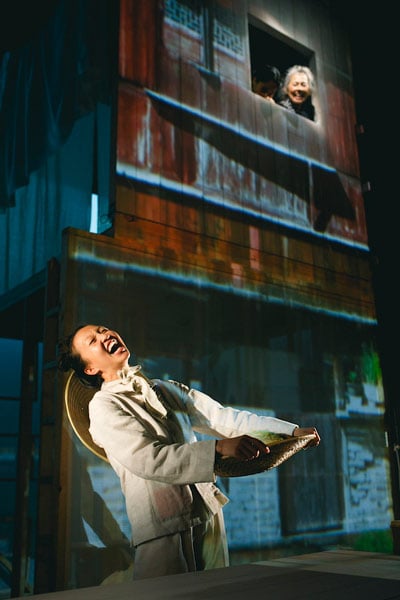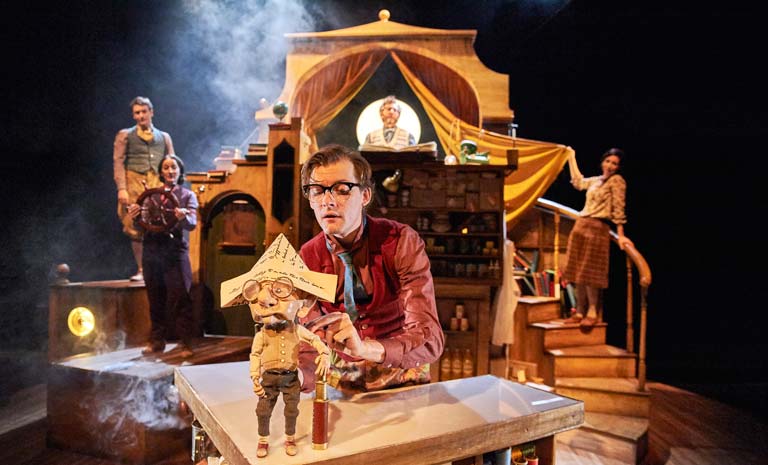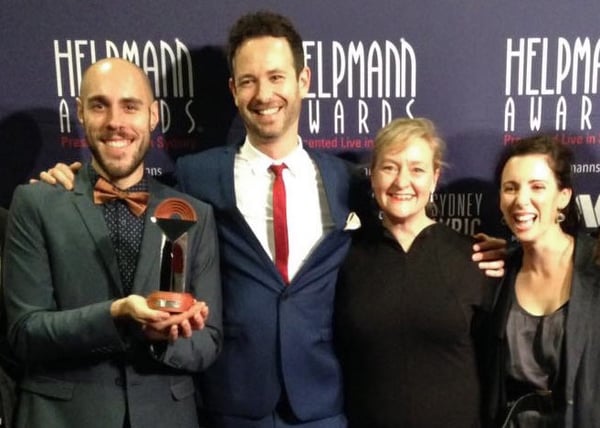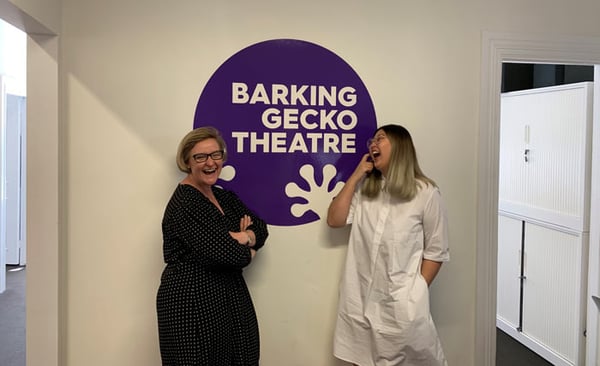Arts and Culture
Presenting and Performance
Article
The Culturephiles
0fac5fde-1fc9-440e-b605-b57a2c554ebe
3 min
https://edge.sitecorecloud.io/tessiturane75c3-tessituraneee12-development-6640/media/Images/Discover-Images/Andrew-Blog/Archive/Barking-Gecko/BGTC_BBL-768x465.jpg?h=465&iar=0&w=768
Protecting the new and going from dash to plus at Barking Gecko Theatre Company
Lessons from Pixar

President & CEO, Tessitura
Lessons from Pixar
5/2/2019
3 min
First: About the name.
The Barking Gecko Theatre Company is a children’s theatre in Perth, the largest city in Western Australia. They are named for the local species of gecko that is, like them, small, unexpectedly loud, and able to effortlessly climb walls and ceilings, thereby seeing the world from all perspectives.
The company is committed to creating new theatrical works of the highest professional quality, and their work has been rewarded with national and international acclaim.
I learned this and much else during a visit to their offices that I made along with Jeremy Dixon, Tessitura Managing Director in the region. We met with Helen Hristofski, CEO and Executive Producer, and Aimee Hughes, Marketing and Communications Manager, in an office whimsically tagged here and there with the purple gecko prints of their logo.

A street view of the Barking Gecko offices
In the midst of this light-hearted fun and chit-chat, I was completely unprepared for the moment that Helen smiled, looked right at me and said:
“Every show we make could sink this company.”
I put down my glass of water.
“We don’t dumb down or slim down our work even though our primary audiences are children. We take on tough topics and make risky art. Our productions have all the sophistication and class as mainstage theatre. And our productions cost just as much as professional adult theatre.
“The difference is that we can only charge a fraction of what a traditional theatre company can charge for a ticket. Maybe 20%. If we can’t produce a work that not only sells well on our stage, but then can get picked up and toured across the country and world, it will sink us. The whole thing is incredibly risky.”

Barking Gecko’s A Ghost in My Suitcase. Left to right: Frieda Lee, Alice Keovahong, Amanda Ma. Photo by Daniel Grant.
Pixar Lesson One: Protect the New
I hadn’t expected any of that. Not because I disagreed, just because I hadn’t thought about children’s theatre in that way before. I just assumed that somehow children’s theatres rolled merrily along, supported by parents, schools and foundations. Helen gently informed me that most children’s theatres in Australia had gone out of business, and that Barking Gecko was one of only a handful of major children’s theatre companies left in the country.
After 30 years, the Gecko is good at hanging on.
Understanding this perilousness, I asked the obvious question: “Then why are you taking on tough topics and making risky art? Wouldn’t it be safer to stick to tried and true stories that are sure to be blockbusters?”
And Helen said: “We tell the stories that our artists believe need to be told. Even if it is risky. And as arts administrators we have got to back our artists. We have to trust that the artists can see over that horizon line. We must assess the risk and how to mange it and then follow them over the horizon, even when you can’t see where they are taking you. I’ve seen other arts organizations play it safe when things get tough and it never turns out well.”
Helen’s words reminded me of a concept from Creativity, Inc., the story of Pixar Animation as told by co-founder Ed Catmull. He tells of a mantra they have at Pixar they call “Protect the New.”
“Part of our job is to protect the new from people who don’t understand that in order for greatness to emerge, there must be phases of not-so-greatness. Think of a caterpillar morphing into a butterfly — it only survives because it is encased in a cocoon. It survives, in other words, because it is protected from that which would damage it.” (Ed Catmull, Creativity, Inc.)

Barking Gecko’s Bambert’s Book of Lost Stories. Left to right: Nick Maclaine, Amanda McGregor, Tim Watts, Igor Sas, Jo Morris. Photo by Jon Green.
Helen is a fan of Pixar and the book, and when I mentioned it, she riffed on the topic, telling me the story of their 2016 production of Bambert’s Book of Lost Stories. It was a production the artistic team truly believed in. And it was expensive and relatively unknown. It was hardly traditional kid’s fare. It included a scene about the Holocaust. And as the costs continued to mount ahead of opening night, Helen kept a nervous eye on the bottom line. (“Every show we make could sink this company.”)
At the same time, she asserted: “If you trust your artists, if you keep them safe on their journey, they will take you all sorts of places.”
Helen protected the new. That, she believes, is her job.
On opening night, the children were transfixed by the storytelling and fantastical production — some climbing into the laps of their parents as they watched. Many adults wept. Everyone gave it a standing ovation.

Barking Gecko wins a Helpmann Award. Left to right: Dan Giovanonni, adapter; Luke Kerridge, co-adapter/director; Helen Hristofski, executive producer; Jo Morris, actor.
Bambert’s Book of Lost Stories went on to tour nationally, including a run at the Sydney Opera House, and won a 2016 Helpmann Award (Australia’s equivalent to the Tony Awards) for Best Production for Children.
Protect the new.
Pixar Lesson Two: Change the Dash to a Plus
It makes the Barking Gecko folks a little crazy that their productions are seen as “for children only”. That their shows are seen with a dash (“for ages 6 – 12”), rather than a plus (“for ages 6+”). Staying on the theme of Pixar, Helen asked, “have you ever gone to see a Pixar movie, not because you are accompanying a child, but because you want to see the movie?”

Helen Hristofski, CEO and Exec Producer, and Aimee Hughes, Marketing and Communications Manager, Barking Gecko Theatre Company.
Yes, of course I have. It is a brilliant point. If you make great theatre that appeals to young people, it should appeal to everyone. Just like Pixar. (Talk about weeping…) And so this is Barking Gecko’s new challenge. To remove the dash and replace it with a plus. To tell the stories that need to be heard — for children and adults alike. Not because it is good business, although it is. But because it is the right thing to do. To follow the artists over the horizon, to protect the new, to take risks, and to bring great theater to all ages.
As Helen said to me as we were wrapping up: “If arts represents our humanity, if you don’t provide great art for your youth, what does that say about how we value our children?”
This post is part of my Small World Tour: My round-the-world trip focused on the innovations of small Tessitura organizations. Much as I’d love to stay in the land of Geckos and Quokkas, there’s a 17.5 hour Qantas flight with my name on it. See you in London…
Topics
Arts & Culture
/Presenting & Performance
